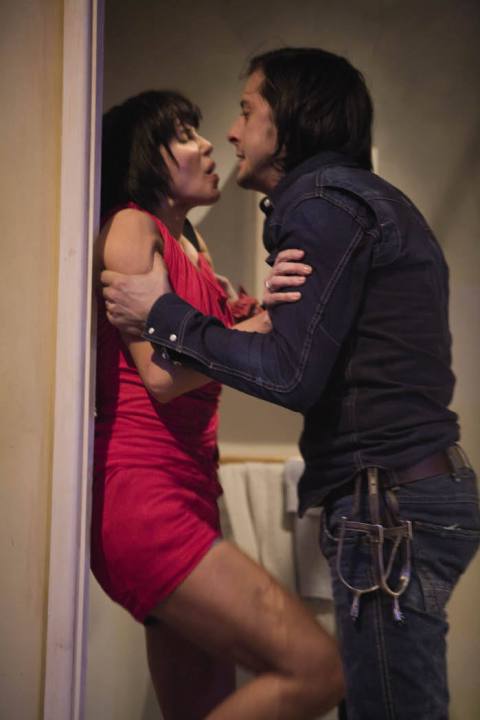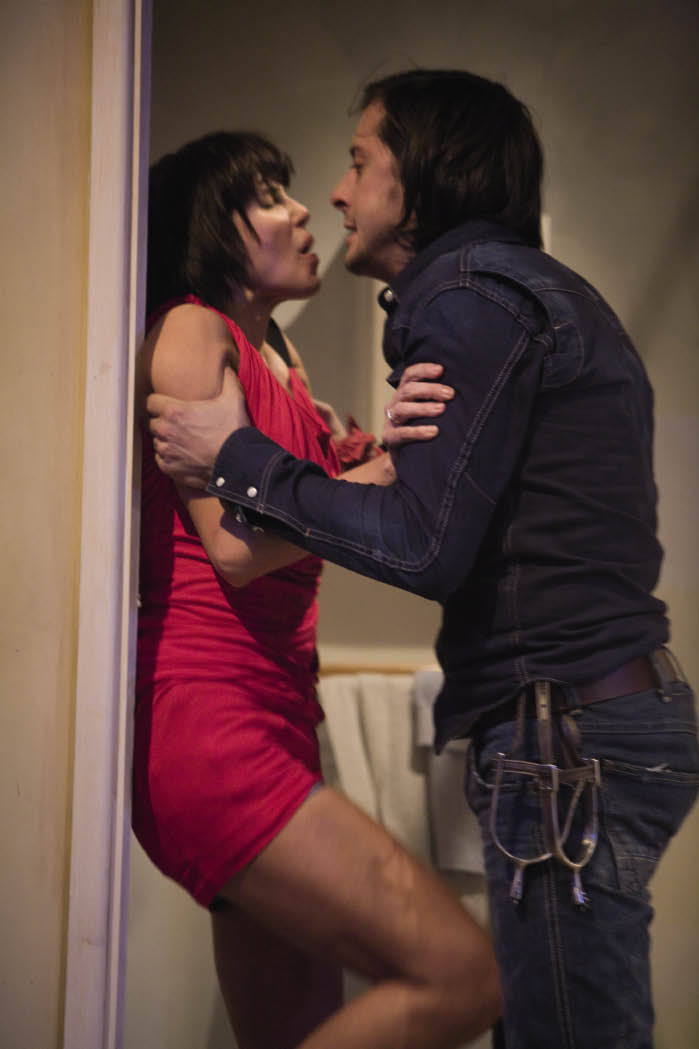Enron
Noël Coward
Fool for Love
Riverside
With Enron, the playwright Lucy Prebble has picked an almighty task. The Texas fuel giant collapsed in 2000 with $30 billion worth of debt, which at the time was the largest bankruptcy in the history of money. The firm’s bosses flipped through the almanac of bent accountancy and lighted on a hoary old swindle. A shadow company was created to buy up their loss-making assets thus boosting profit margins and forcing the stock price skywards. To get the auditors to sign off the paperwork Enron simply bribed them. Anyone hoping to find any ingenuity or sophisticated elegance in the fraud will be disappointed. Money is a very blunt instrument in this play.
So is the writer’s technique. Playwrights usually shape their work from three components: compelling characters, an intriguing mission, an uncertain outcome. Prebble does the opposite. Her characters are gruesome stiffs, their aims are despicable and the ending is a foregone conclusion. All sympathy, all suspense are eradicated from the start. The Enron board is full of clichés in dated clothing. Sam West plays the main fraudster, Jeffrey Skilling, as a cold, arrogant, greedy, three-quarters-autistic woodentop. His boss, Ken Lay, is more likeable but scarcely more engaging, a chortling buffoon played with desperate eagerness by Tim Pigott-Smith. The love interest comes from Amanda Drew as the boardroom bimbo who wears the full Big Bang rig of pencil skirt, black heels, scarlet tunic and bundles of blonde hair. Because she’s as greedy and manipulative as Skilling we don’t feel involved in their boardroom fumblings. Her character, though prominent in Act I, is clumsily discarded after the break.
When Prebble gains experience she’ll learn to husband her characters more artfully than this. Act II shifts our focus to the relationship between Skilling and Andy Fastow, his financial officer and swindle-master-in-chief. Fastow, alas, is yet another avaricious, solipsistic dork, a vague replica of Skilling, but nastier and weirder. Their alliance is based on further unpleasantness, on greed, fear and expediency. In a key scene, when the scale of Enron’s debts is about to be uncovered, we see Fastow in his lair being menaced by pantomime dinosaurs which he chases around with a cattle prod while they whinny back at him threateningly. This is amusing, sort of, but it’s hardly sophisticated drama. And it epitomises what’s missing from this play: imaginative sympathy. Prebble doesn’t know and can’t tell us what it feels like to be at the helm of a collapsing financial giant so she resorts to Teletubby puppets. Instead of tragic insight or moral ambiguity we get plastic crocs going snarly-snarly-snarly.
This play aims very low, at the incurious, at the poorly informed. ‘Hedge fund’, ‘band-width’ and even ‘analyst’ are all defined. Rupert Goold’s direction has been praised for its zest and energy. Certainly, he uses lots of colour and noise but always in pursuit of facile imagery. A bull market is represented by squads of yuppies in sunshades barking into telephones. That’s been a cliché since 1987. Originally Prebble planned the play as a musical and its genealogy is still detectable. Barbershop quartets perform satirical anthems, and choruses of whooping cowboys leap about, swinging the Stars and Stripes. The assumption here seems to be that the folk costume of America is inherently ludicrous and somehow indicative of moral failings. The play ends, as it began, repeating what it thinks we want to hear: those grasping scumbags got what they deserved. With Skilling being led away in handcuffs, the script offers up a glimpse of its true agenda. Enron’s malpractices, we’re told, are still widespread in the banking community. Mmm.
This production hasn’t the slightest interest in finance, only in crowing over its recent troubles. As the exhausted audience trooped out of the theatre, I heard some Americans politely thanking their embarrassed English hosts for choosing this ‘interesting’ show — a very generous description of a three-hour Loadsamoney sketch. If you need to entertain a party of bankers, or of Americans, take them to see The Little Dog Laughed instead. Enron’s collapse is a story of folly, greed and criminality on an epic scale. One day it will make a great play.
To the Riverside, where a Sam Shepard revival has been treated to some celebrity casting. The famous performers were new to me and, I believe, to acting. Carl Barat, from the Libertines, plays the lead in this torrid play about tequila and incest. Sadie Frost, from the Mail on Sunday and other newspapers interested in photographing cellulite, plays his girlfriend and half-sister. The actors can’t really act but I somehow doubt if they were trying. Sadie Frost’s toasty sun-tanned thighs — to move to the real point of the play — are in fabulous nick for a woman in her forties. This show’s got legs all right, but don’t take that as a recommendation.








Comments